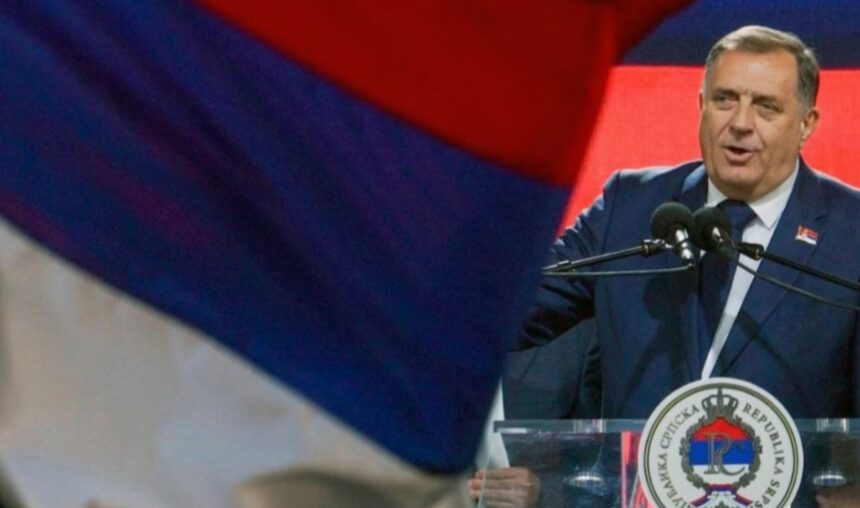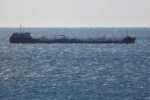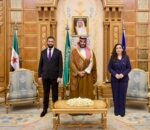Bosnian Serb leader Milorad Dodik delivered a controversial pro-Russian and anti-European speech in North Macedonia during the celebration of the Serbian national holiday, Holy Saviour. His remarks, filled with nationalist rhetoric and direct criticism of the European Union, have provoked sharp reactions from North Macedonian political figures and the wider international community.
Dodik’s Anti-European and Pro-Russian Rhetoric
Dodik, who is widely known for his alignment with Moscow, criticized the European Union for allegedly making excessive concessions while failing to provide tangible benefits to smaller nations.
“We are on the European path, but we see that the Europe that has been most embarrassed in North Macedonia is the one that has made many concessions and benefited little from that Europe. One day we will have to stop and think carefully about whether we continue on this path.”
In a speech laden with nationalist sentiment, he openly supported Serbia, Republika Srpska, and Russia, ending his statement with:
“Long live Macedonia, long live Serbia, long live Republika Srpska, and long live fraternal Russia.”
Dodik, who remains on the U.S. sanctions list for corruption and undermining Bosnia and Herzegovina’s stability, also denied the Srebrenica genocide and launched attacks against NATO, further distancing himself from Western policies.
Reactions from North Macedonian Leaders
Dodik’s statements triggered immediate backlash in Skopje. North Macedonia’s Prime Minister Hristijan Mickoski strongly condemned the remarks, emphasizing that North Macedonia is firmly committed to its Euro-Atlantic path and will not tolerate foreign interference or divisive rhetoric.
“North Macedonia is a sovereign nation dedicated to its European future. We will not allow anyone, including Dodik, to undermine our progress with dangerous rhetoric that goes against the principles of democracy and regional stability.”
The country’s Foreign Minister also criticized Dodik’s speech, stressing that North Macedonia’s government will not support any discourse that fuels nationalism or glorifies autocratic regimes.
Outrage from Political and Civil Society Groups
The Bosniak Democratic League of North Macedonia issued a statement denouncing Dodik’s visit, condemning the fact that he was received by some North Macedonian officials despite his placement on the U.S. blacklist.
“It is unacceptable that someone like Dodik, who is sanctioned for his genocidal policies and corruption, is given a platform in Skopje. His words not only insult the victims of Srebrenica but also pose a direct challenge to the democratic values that North Macedonia upholds.”
Civil society organizations and opposition leaders also voiced their concerns, warning that such visits risk emboldening nationalist elements in the region.
Regional and International Implications
Dodik’s inflammatory rhetoric comes at a time of heightened tensions in the Balkans. His statements align closely with the Kremlin’s interests, particularly as Russia seeks to maintain its influence in the region and disrupt the EU’s expansion efforts. Western diplomats in North Macedonia and Bosnia have reiterated their warnings about Dodik’s destabilizing agenda, urging the region’s leaders to remain vigilant against attempts to sow division.
Dodik’s visit to North Macedonia and his radical speech have exposed deep political fault lines, reinforcing the divide between pro-European forces and nationalist factions backed by Russia. The strong backlash from North Macedonia’s government highlights the country’s commitment to its Western alliances, despite attempts to steer it off course. As tensions rise in the Balkans, Dodik’s role as a provocateur remains a growing concern for regional stability and European integration efforts.







